Bradshaw:Glossary: Difference between revisions
(→A: links correct) |
(→C: links) |
||
| Line 51: | Line 51: | ||
*'''CAWS''': Continuous Automatic Warning System | *'''CAWS''': Continuous Automatic Warning System | ||
*'''CBTC''': Communications Based Train Control | *'''CBTC''': Communications Based Train Control | ||
** Name given to the SelTrac installation being installed on [[London Underground|London Underground’s]] SSR as part of the 4LM project to enable ATO. See also TBTC and DTG-R | ** Name given to the SelTrac installation being installed on [[London Underground|London Underground’s]] SSR as part of the [[#0-9|4LM]] project to enable [[#A|ATO]]. See also [[#T|TBTC]] and [[#D|DTG-R]] | ||
*'''CD''': Close Doors (Indication) | *'''CD''': Close Doors (Indication) | ||
*'''CDL''': Central Door Locking | *'''CDL''': Central Door Locking | ||
| Line 58: | Line 58: | ||
*'''CLR''': Central London Railway | *'''CLR''': Central London Railway | ||
*'''CM''': Coded Manual | *'''CM''': Coded Manual | ||
** A mode of operation used on [[London Underground|London Underground’s]] [[Central line|Central]] and [[Victoria line|Victoria]] lines where the Train Operator drives the train manually at up to normal line speed using signalling information provided on an in-cab display. See also PM | ** A mode of operation used on [[London Underground|London Underground’s]] [[Central line|Central]] and [[Victoria line|Victoria]] lines where the Train Operator drives the train manually at up to normal line speed using signalling information provided on an in-cab display. See also [[#P|PM]] | ||
*'''CoT''': Close of Traffic | *'''CoT''': Close of Traffic | ||
*'''CR''': [[Chiltern Railways]] | *'''CR''': [[Chiltern Railways]] | ||
| Line 68: | Line 68: | ||
*'''CSLR''': City & South London Railway | *'''CSLR''': City & South London Railway | ||
*'''CSR''': Cab Secure Radio | *'''CSR''': Cab Secure Radio | ||
*'''CTBC''': Combined Traction Brake Controller, See also TBC | *'''CTBC''': Combined Traction Brake Controller, See also [[#T|TBC]] | ||
*'''CTRL''': Channel Tunnel Rail Link | *'''CTRL''': Channel Tunnel Rail Link | ||
*'''CWN''': Carriage Working Notice | *'''CWN''': Carriage Working Notice | ||
Revision as of 04:19, 19 February 2021
Not everyone knows all the hundreds of rail-specific acronyms and initialisms, so if any pop up in conversation on the Discord server, add them and their meaning below so others can look them up.
Please keep these in alphabetical order so it is easy to find a specific term.
0-9
- 4LM: Four Lines Modernisation programme
- 4 Foot The space between the two running rails on a section of track
- 6 Foot The area between a pair of running lines
- 10 Foot The area between two pairs of running lines
A
- ABCL: Automatic Barrier Crossing, Locally Monitored
- ABDO: Automatic Braking and Door Opening
- ACOA: Adverse Change Of Aspect
- ACWN: Altered Carriage Working Notice
- AHB: Automatic Half-Barrier Crossing
- AHBC: Automatic Half-Barrier Crossing
- ANP: Auto Not Permitted
- An operating state on London Underground ATO lines where trains have been prevented from operating in ATO mode and must instead operate in CM or PM, normally initiated due to staff on our around the track area.
- AOCL: Automatic Open Crossing, Locally Monitored
- ARL: Arriva Rail London
- ARS: Automatic Route Setting
- ASC: Area Signalling Centre
- ASDO: Automatic Selective Door Opening
- ATC: Automatic Train Control
- ATO: Automatic Train Operation
- ATOC: Association of Train Operating Companies
- ATP: Automatic Train Protection
- ATS: Automatic Tram Stop
- ATW: Arriva Trains Wales
- AWC: Avanti West Coast
- AWS: Automatic Warning System
B

- BML: Brighton Main Line
- BR: British Rail
- BTC: British Transport Commission
- BTP: British Transport Police
C

- C+H: Circle and Hammersmith & City lines
- CAPE: Cancelled At Point of Entry
- CAWS: Continuous Automatic Warning System
- CBTC: Communications Based Train Control
- Name given to the SelTrac installation being installed on London Underground’s SSR as part of the 4LM project to enable ATO. See also TBTC and DTG-R
- CD: Close Doors (Indication)
- CDL: Central Door Locking
- Cess: The area along either side of a railway line which is kept at a lower level than the sleeper bottom, in order to provide drainage.
- CIS: Customer Information System
- CLR: Central London Railway
- CM: Coded Manual
- A mode of operation used on London Underground’s Central and Victoria lines where the Train Operator drives the train manually at up to normal line speed using signalling information provided on an in-cab display. See also PM
- CoT: Close of Traffic
- CR: Chiltern Railways
- CRS: Computer Reservation System
- CS: Caledonian Sleeper
- CSA: Customer Service Assistant
- CSDE: Correct Side Door Enable
- CSL2: Customer Service Level 2
- CSLR: City & South London Railway
- CSR: Cab Secure Radio
- CTBC: Combined Traction Brake Controller, See also TBC
- CTRL: Channel Tunnel Rail Link
- CWN: Carriage Working Notice
D
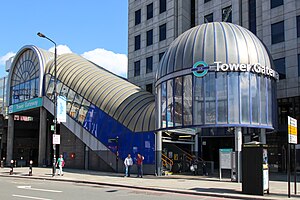
- DCO: Driver Controlled Operation
- A system of operation on the National Rail Network where a train operates with both a driver and at least one other memeber of staff onboard, but where the driver is responsible for operation of the trains doors as well as driving the train.
- DCV: Door Closed Visual
- DDA: Disability Discrimination Act
- DLR: Docklands Light Railway
- DOO: Driver Only Operation
- A system of operation on the National Rail Network where the only member of operational staff onboard a train is the driver who is responsible for all aspects of the trains operation. Analagous to OPO on London Underground
- DRA: Driver Reminder Appliance
- DSD: Driver's Safety Device
- DTG-R: Distance to Go Radio
- ATO system in use on London Underground’s Victoria line
- DVA: Digital Voice Announcer
E
- E*: Eurostar
- ECML: East Coast Main Line
- ECS: Empty Coaching Stock
- EMR: East Midlands Railway
- EMT: East Midlands Trains
- EP: Entry Point
- EPH: Electric Point Heater
- ERTMS: European Rail Traffic Management System
- ERU: Emergency Response Unit
- ES: Eurostar
- ESDC: Emergency Saloon Door Control
- ESR: Emergency Speed Restriction
- ETCS: European Train Control System
F
- FGW: First Great Western
- FLIRT: Fast Light Intercity and Regional Train
- FOC: Freight Operating Company
- FPI: Facing Points Indicator
- FPL: Facing Point Lock
- FRL: Fixed Red Light
- FTDotYotYDPMTTASSBBS: The Former Tram Driver of the Year of the Year Daniel Patterson Memorial Tramway Tramcar Arrestor System Stop Block Buffer Stop.
G

- GA: Greater Anglia
- GC: Great Central
- GEML: Great Eastern Main Line
- GLA: Greater London Area
- GLA: Greater London Authority
- GLC: Greater London Council
- GN: Great Northern
- GoA (0-4): Grade of Automation
- GOP: Guard's Operating Panel
- GSM-R: Global System for Mobile Communications – Railway
- GTR: Govia Thameslink Railway
- GWML: Great Western Main Line
- GWR: Great Western Railway
- GX: Gatwick Express
H
- HEX: Heathrow Express
- HML: Highland Main Line
- HS1: High Speed 1
- HS2: High Speed 2
- HST: High Speed Train
- HT: Hull Trains
I

- IBJ: Insulated Block Joint
- IC: Intercity
- IECC: Integrated Electronic Control Centre
- IEP: Intercity Express Programme
- IET: Intercity Express Train
- IMR: Interlocking Machine Room
- IoW: Isle of Wight
J
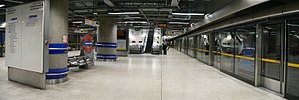
- JLE: Jubilee Line Extension
K
- KYT: Know Your Train
- KVB: Contrôle de Vitesse par Balises
L
- LM: London Midland
- LNER: London North Eastern Railway
- LNR: London Northwestern Railway
- LO: London Overground
- LOM: Limit of Movement
- LOROL: London Overground Rail Operations Ltd.
- LOS: Limit of Shunt
- LPTB: London Passenger Transport Board
- LRT: London Regional Transport
- LRV: Light Rail Vehicle
- LSL: Locomotive Services Limited
- LT: London Transport
- LTE: London Transport Executive
- LTM: London Transport Museum
- LTP: Long Term Plan
- LUL: London Underground Ltd.
M
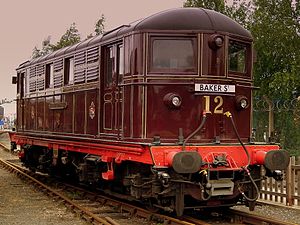
- MDR: Metropolitan District Railway
- MENTOR: Mobile Electric Network Testing Observation and Recording
- MML: Midland Main Line
- MOM: Mobile Operations Manager
- MR: Metropolitan Railway
- MTR: Mass Transit Railway (Hong Kong Subway)
N
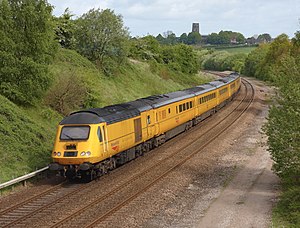
- NCT: Non-Communicating Train
- NLC: National Location Codes
- NLE: Northern Line Extension
- NMT: New Measurement Train
- NR: Network Rail
- NR: Northern Rail
- NRM: National Railway Museum
- NRN: National Radio Network
- NSE: Network South East
- NTCO: Not To Call Order
O
- OA: Open Access
- OCS: Overhead Contact System
- OLE: Overhead Line Equipment
- ORR: Office of Rail and Road
- OOL: On Our Lines (this project)
- OPO: One Person Operation
- The term used by London Underground to describe the running of trains where the only member of operation staff required is a T/Op. Analagous to DOO on National Rail
P

- PDL: Portsmouth Direct Line
- PEA: Passenger Emergency Alarm
- PED: Platform Edge Doors
- PEP: Prototype Electro Pneumatic Train
- PIS: Passenger Information System
- PLPR (1-4): Plain Line Pattern Recognition
- PM: Protected Manual
- A mode of operation used on London Underground’s Jubilee and Northern lines and the SSR where ATO is fitted. In this mode the Train Operator drives the train manually at up to normal line speed using signalling information provided on an in-cab display. See also CM
- PoSA: Proceed-on-Sight Authority
- PPE: Personal Protective Equipment
- PPI: Points Position Indicator
- PRI: Preliminary Route Indicator
- PRM: Persons with Reduced Mobility
- PSA: Passenger Service Agent
- PSB: Power Signal Box
- PSD: Platform Screen Doors
- PSR: Permanent Speed Restriction
- PTI: Platform Train Interface
- PTS: Personal Track Safety
Q
- Q Code train: A train that runs as required
R
- RA: Right Away (Indication)
- RAIB Rail Accident Investigation Branch
- RAT: Rail Adhesion Train
- RDG: Rail Delivery Group
- REC: Railway Emergency Call
- RGI: Rail Gap Indicator
- RHTT: Rail Head Treatment Train
- RM: Restricted Manual
- A mode of operation used in certain failure situations on London Underground ATO lines where the Train Operator drives the train manually under authority from the signaller
- ROC (Network Rail): Rail Operating Centre
- ROC (SimSig:Sessions): Railway Operating Centre
- RSF: Right Side Failure
- RSSB: Rail Safety and Standards Board
- RTT: Real Time Trains
- RVAR: Rail Vehicle Accessibility Regulations
S

- SATS: Staff Assisted Train Services
- SCAT: Speed Control After Tripping
- SCC: Service Control Centre
- SCD: Short Ciruiting Device
- SCL1: Service Controller Level 1
- SCL2: Service Controller Level 2
- ScR: ScotRail
- SDC: Service Delivery Centre
- SDO: Selective Door Opening
- SE: Southeastern
- SMA (0.5-14): Signal Migration Area
- SMD: Stratford Market Depot
- SN: Southern Rail
- SoT: Start of Traffic
- SotD: Signal of the Day
- SPAD: Signal Passed At Danger
- SPAR: Signal Passed At Red
- SPAS: Signal Passed At Stop
- SPT: Signal Post Telephone
- SR: ScotRail
- SRA: Strategic Rail Authority
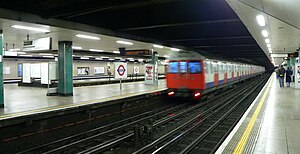
- SRAWS: Signal Repeating Automatic Warning System
- SSI: Solid State Interlocking
- SSO: Special Stop Order
- SSR: Sub-Surface Railway
- STANME: Station Number Names
- STANOX: Station Numbers
- STN: Special Train Notice
- STP: Short Term Plan
- SWML: South West Main Line
- SWR: South Western Railway
- SWT: South West Trains
T


- TAS: Traction Auxillary Set
- TAT: Traction Auxillary Trip
- TBC: Traction Brake Controller
- TBTC: Transmission Based Train Control
- Name given to the SelTrac installation used on London Underground’s Jubilee and Northern lines. See also CBTC and DTG-R
- TC: Track Circuit
- TCD: Traffic Controllers Diagrams
- TCF: Track Circuit Failure
- TCP: Trip Cock Protection
- TD (London Underground): Train Description
- TD (Network Rail): Train Describer
- TfGM: Transport for Greater Manchester
- TfL: Transport for London
- TfW: Transport for Wales
- TIPLOC: Timing Point Location
- TL: Thameslink
- TMS: Train Management System
- Onboard computer on trains which monitors the status of various systems and may manage the onboard information system of the train.
- TMS: Tram Management System
- Onboard computer on trams which monitors the status of various systems and may manage the onboard information system of the train.
- Signalling system used on the Manchester Metrolink.
- TOC: Train Operating Company
- T/Op: Train Operator
- TOPS: Total Operations Processing System
- TPE: TransPennine Express
- TPS: Train Planning System
- TPWS: Train Protection and Warning System
- TRC: Track Recording Car
- TRT: Track Recording Train
- TRTS: Train Ready To Start
- TRU: Track Recording Unit
- TRV: Track Recording Vehicle
- TS: Tube Stock
- TSC: Transport Strategy Centre
- TSF: Track Section Failure
- TSI: Technical Specifications for Interoperability
- TSR: Temporary Speed Restriction
- TSW: Train Sim World
- TTN: Timetable Notice
- TYT: Track Your Train
U
- UERL: Underground Electric Railway Company of London
- UTO: Unattended Train Operation
- UTU: Ultrasonic Test Unit
- UWC: User Worked Crossing
V
- VAR: Varied Timetable
- VCC: Vehicle Control Centre
- VTEC: Virgin Trains East Coast
- VOBC: Vehicle On Board Computer
- VRS: Vehicle Recognition System
- VSTP: Very Short Term Plan
- VT: Virgin Trains
W
- WAML: West Anglia Main Line
- WCML: West Coast Main Line
- WCRC: West Coast Railway Company
- WDM: Wrong Direction Move
- WMR: West Midlands Railway
- WMT: West Midland Trains
- WSF: Wrong Side Failure
- WSL: Wrong Signal Lowered
- WTT: Working Timetable
X
- XC: Cross Country
- XR: Crossrail
